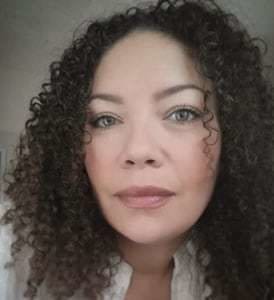MAC Region: JK NGS

Tell us a little bit about who you are apart from your illness. I am wife to a wonderful fella who was the first “love of my life”, just took us a while to figure that out. Also, a crazy home cook who spends a lot of time in the kitchen tinkering with recipes from around the world. I work as a relocation representative for the faculty of MIT and we help relocate incoming folks to the Institute as well as administer a mortgage program to assist faculty secure housing in this crazy Boston/Cambridge market. I’m a big sports fan and enjoy spending time with my HUGE, CRAZY and diverse family. Lastly, I read a lot. Thankfully we have a lot of libraries here at the Institute and the Boston Public Library in Copley Square has been my favorite place to hide since I was a kid.
What is your diagnosis and when were you diagnosed? Rheumatoid Arthritis. I was mis-diagnosed with Lupus in 1998 and then correctly diagnosed some years later (maybe 6 or so?) by a new physician who has been with me ever since.
Can you talk a little bit about your experience with diagnosis? It has absolutely been life changing. The pain, fatigue and other side effects are one thing, but the social and economic changes are the hardest. Having to take jobs simply for insurance and not being able to socialize both because of physical and financial limitations has, frankly, sucked. But I am thankful for my diagnosis. Really. It has taught me a lot about myself as well as the people around me.
What is your greatest challenge in living with a rheumatic disease? Getting people to understand that even though I look okay I may not be feeling okay. That and insurance companies…
Describe something that keeps you hopeful in the day-to-day struggles with your illness. Knowing that I serve a purpose to others keeps me hopeful. My husband and family need me, my work is meaningful to many, and my cooking can always put a smile on someone’s face. Those are all good things.
Why is advocacy important to you? Advocacy is important to me because of my family history with auto immune disorders. The majority of those diagnosed have a glib outlook on this topic. Like an “it is what it is” mentality. My advocacy has started to open the door for a conversation about deserving better treatment and access to care. Also, I think that it is important that our stories get out there. I was young when I was diagnosed, 19, and was told I was “too young”. We know that is simply not true. So my hopes as an advocate are to help the young dealing with this as well as help educate family members and caregivers to help older, less vocal, patients get the best care possible.





